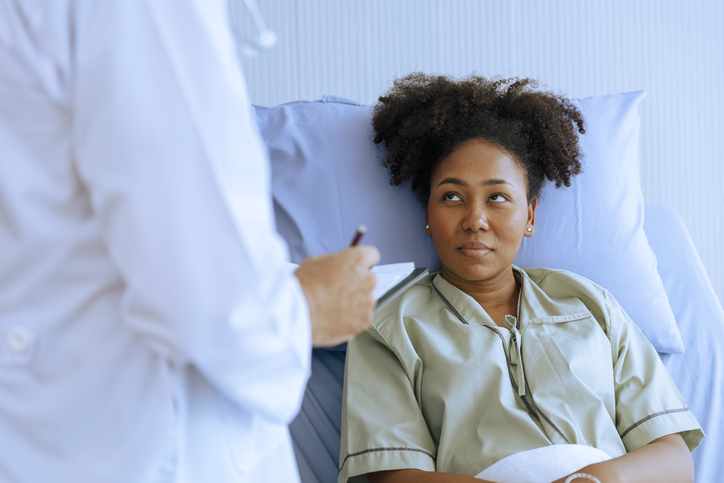
Source: Suriyapong Thongsawang / Getty
Ovarian cancer is not nearly as prevalent as some other cancers in women such as breast and uterine. For that reason, it isn’t discussed as often and sometimes it doesn’t feel real. However, for the one in every 75 women who will get it (says Planned Parenthood), the pain and trauma surrounding it is very real. That is especially true for Black women, who face significantly lower survival rates of ovarian cancer than other groups, according to the National Cancer Institute (NCI).
While ovarian cancer rates have dropped steadily for all groups over recent decades, that hasn’t been the case for Black women. In fact, between the years 1975 and 2016, five-year survival rates in Black women dropped by three percent, says the NCI. This is just one of the reasons Teal Talk Day is so important – it’s a day to raise awareness for ovarian cancer. The number of cases might be low, but for women who are affected, the implications are serious and these women need to be seen. Here’s what to do if ovarian cancer runs in your family.
Understanding Your Family History

Source: Daniel Llao Calvet / Getty
While only three percent of breast cancer cases result from a genetic mutation, 10 percent of ovarian cancer cases are due to an inherited genetic mutation, specifically of the BRCA1 and BRCA2 genes, according to the CDC. So knowing if this cancer, or this mutation, runs in your family can help you in your battle against it.
The BRCA1 and BRCA2 genes can be inherited on your mother or father’s side, so gather medical history information from both sides of your family. Present these to your doctor. If they think it’s necessary, they might refer you to a genetic counselor.
Genetic counselors specialize in analyzing a person’s family medical history, and determine if genetic testing for specific conditions is necessary. If a genetic counselor does recommend genetic testing for the BRCA1 and BRCA2 genes, the best course of action is to first have someone in your family who has had ovarian cancer take the test. If they test positive for this mutation, then the counselor will likely recommend that you (and other family members at risk) also get the test.









